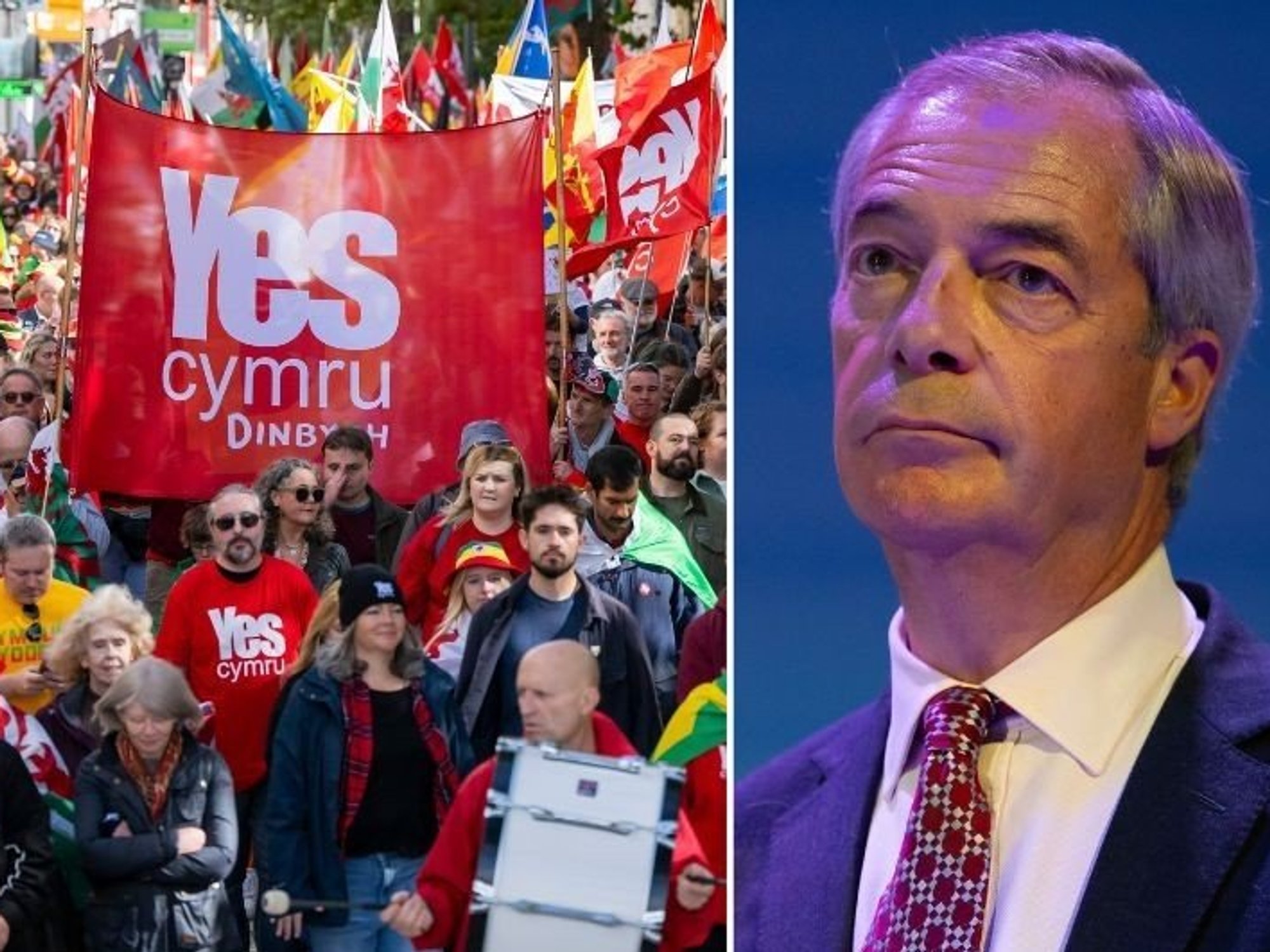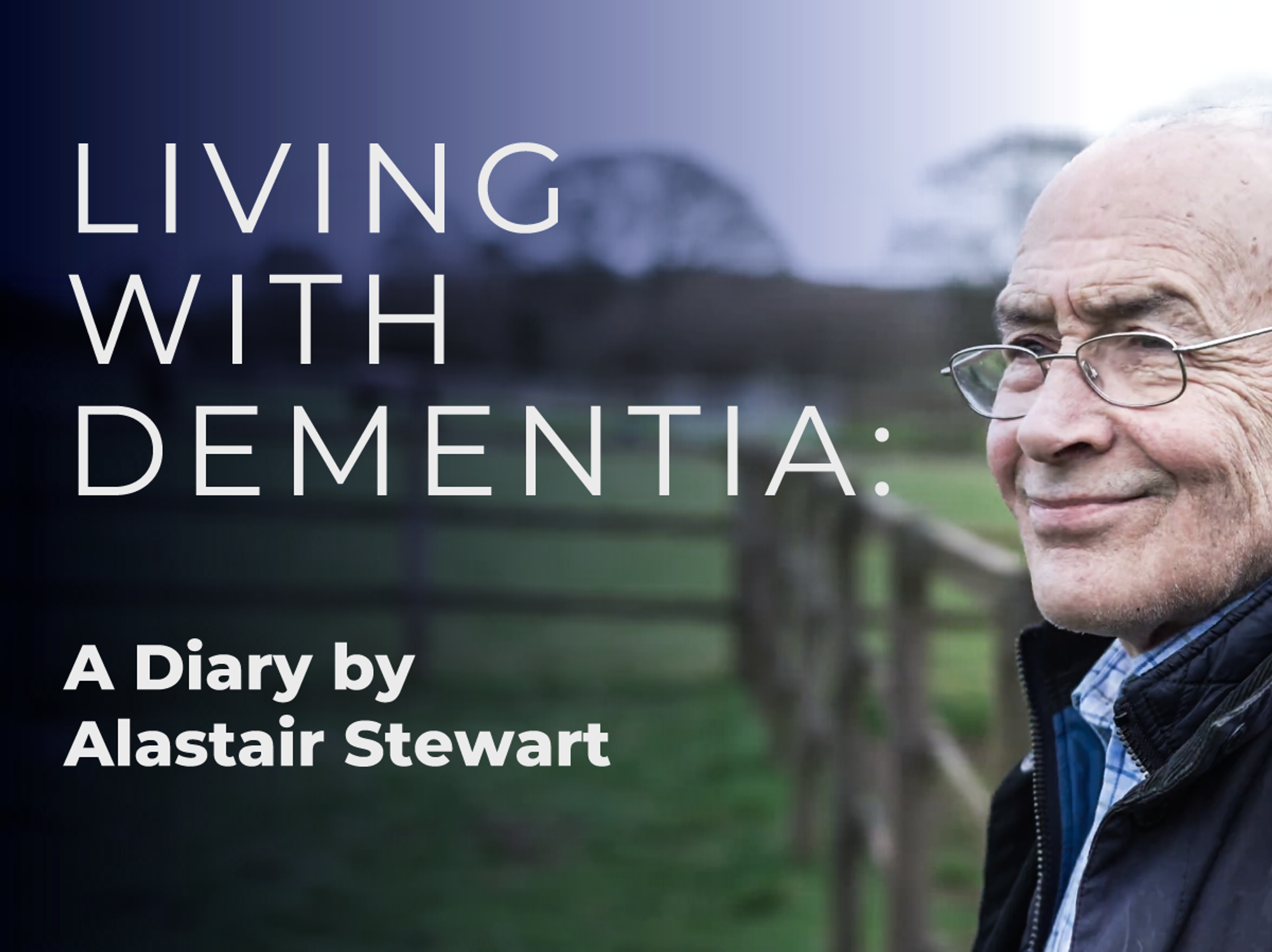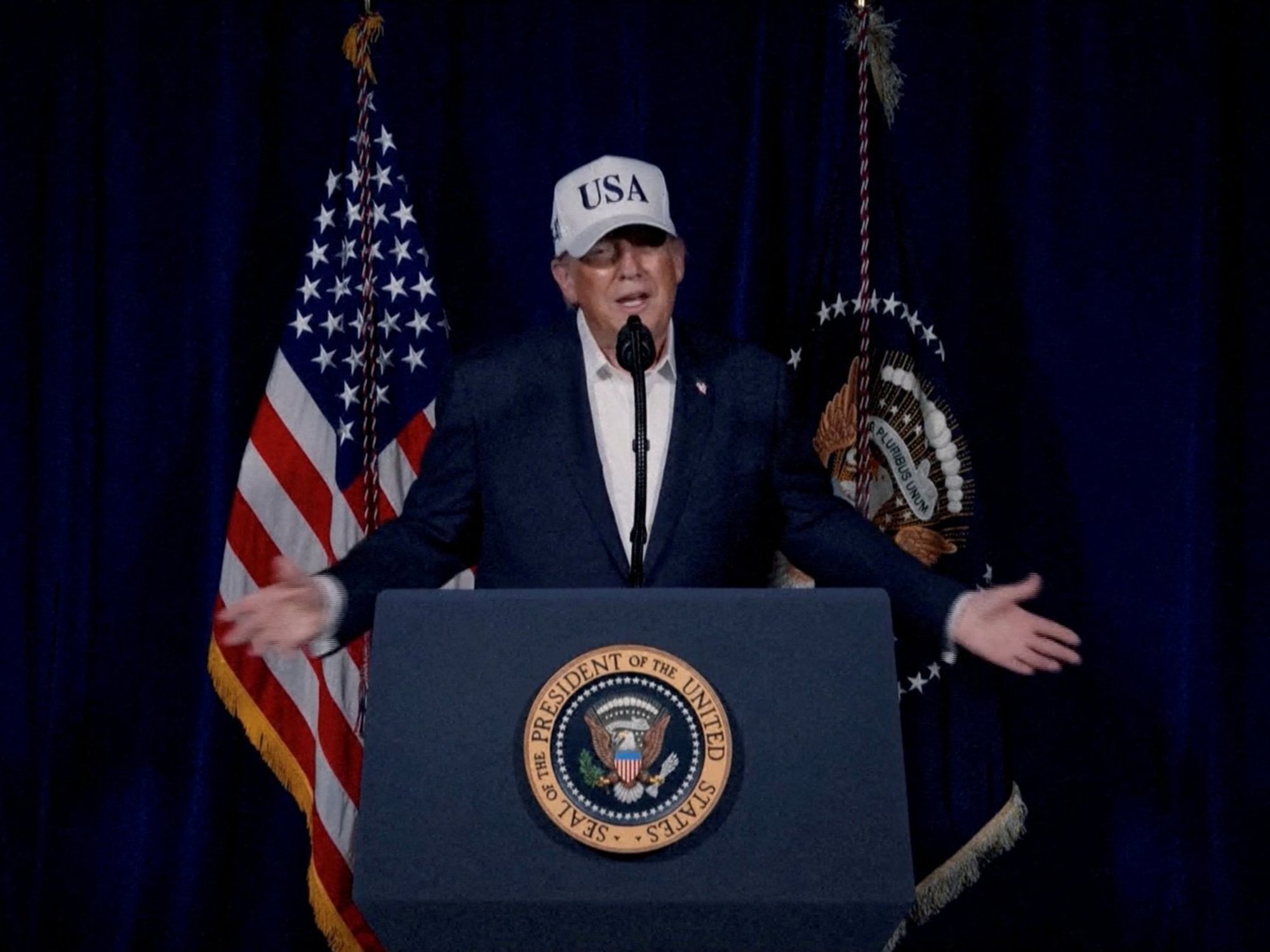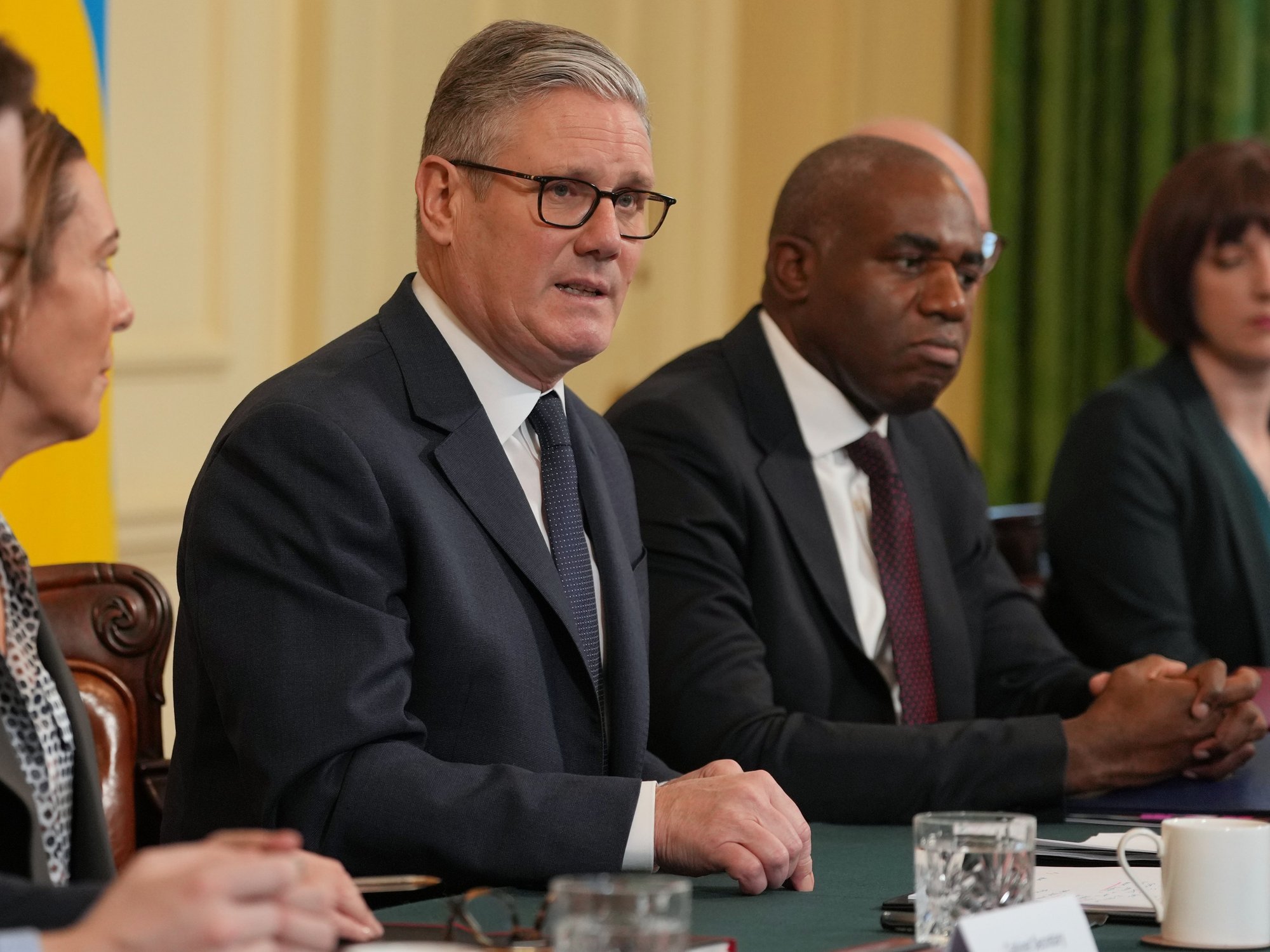GB News publishes response to proposed Ofcom changes to Broadcasting Code - Read in full

GB News has responded to the proposed changes by Ofcom to Rule 5.3 of the Broadcasting Code
|PA
Our full response to the proposed changes to Rule 5.3 of the Broadcasting Code on the subject of politicians presenting news
Don't Miss
Most Read
Trending on GB News
A. Overview
1. Ofcom is consulting on a proposal to amend Rule 5.3 of the Broadcasting Code.1 The identified principal purpose of the proposal is to bring “clarity” to the scope of Rule 5.3 so as to “make clear that the restriction on politicians presenting news applies to news in any type of programme included in a service, and is not limited to “news programmes””.2 Ofcom has made clear that the proposal is a direct reaction to the High Court ruling that Ofcom had previously acted unlawfully when finding GB News to be in breach of Rule 5.3.3
2. The proposal would amend Rule 5.3 as follows, as well as revise the related guidance:
“No politician may be used as a newsreader, news interviewer or news reporter in any news programmes type of programme unless, exceptionally, it is editorially justified. In that case, the political allegiance of that person must be made clear to the audience”.
3. GB News strongly opposes Ofcom’s proposal. The proposal itself is unsupported by evidence, irrational and ultra vires. It would increase the regulatory burden on regulated entities such as GB News, restricting competition and media plurality, making it more difficult for smaller ‘challenger’ entities by unnecessarily increasing the regulatory burden on them.
4. The consultation process is flawed and gives the impression of partiality and predetermination.
5. The proposals contravene Ofcom’s own regulatory principles that:
5.1. “Ofcom will operate with a bias against intervention…”.
5.2. “Ofcom will intervene where there is a specific statutory duty…”.
5.3. “Ofcom will always seek the least intrusive regulatory methods of achieving its objectives”.
5.4. “Ofcom will strive to ensure that interventions are evidence-based, proportionate, consistent, accountable and transparent in both deliberation and outcome”.4
6. The main body of this response sets out GB News’ overarching comments on the substance of Ofcom’s consultation. GB News’ response to Ofcom’s specific consultation questions is set out in Appendix 1. The response to those questions should be read alongside the body of this response.5
B. The proposal misrepresents the regulatory landscape and claims to solve a problem that does not exist
7. In setting out its rationale for the proposal, Ofcom states that “there is a need for clarity on the scope of Rule 5.3”. It states that “Our proposed amendment to Rule 5.3 would make clear that the restriction on politicians presenting news applies to news in any type of programme included in a service, and is not limited to “news programmes””.6 This misrepresents the current status of the scope of Rule 5.3 and the effect of the proposal.
8. The scope of Rule 5.3 is well understood. In fact, it has never been better understood. The scope of Rule 5.3 was examined in detail by the Court as part of GB News’ successful judicial review of two Ofcom breach decisions.7 Mrs Justice Collins Rice DBE, in her judgment, handed down on 28 February 2025, stated that “I do not find material ambiguity in Rule 5.3. It is limited by its reference to the news-related activities of politicians in any news programmes…News-related activities of politicians in any other programmes, including in current affairs programmes, fall outside of Rule 5.3…Rule 5.3 does not apply outside news programmes”.8 Her judgment provides further guidance on the meaning of these provisions.
9. Ofcom had itself invited the Court to opine on the meaning of those provisions in order to provide clarity for those regulated by its provisions. In its Summary Grounds of Resistance it consented to permission for judicial review being granted, stating that:
“in view of the importance, for Ofcom and those it regulates, of achieving clarity as to the scope and application of the Code’s due impartiality provisions, Ofcom does not resist permission [being granted for judicial review] in relation to these Grounds.” (our emphasis)
10. Following the Court’s judgment, Ofcom “confirmed that we accepted the guidance of the Court”.9 Yet despite having obtained the clarity that it wished to obtain from the Court, and Mrs Justice Collins Rice DBE stating that there is no material ambiguity in Rule 5.3, Ofcom immediately announced it was issuing a consultation to change the rules on the basis they are not clear. It is not correcting any lack of clarity, indeed, by its draft amendments to the Code it is putting forward the interpretation of the Code which the Court rejected as doing “violence” to its language.10
11. It is impossible to escape the conclusion that either Ofcom was being disingenuous when it said it welcomed the Court giving its opinion on the meaning of the Code in order to provide clarity, or it is being disingenuous now in stating that the rules must be changed because they are unclear. Both positions cannot be correct. Ofcom asked for the Court to say what the Code means, and it did so. Ofcom said it accepted that guidance. There is simply no basis for Ofcom contending that there is a problem with the Code provisions lacking clarity. The real issue is that Ofcom does not like the answer the Court gave, not that there is any lack of clarity in the Code. Ofcom is seeking to considerably extend the scope of the Code and the prohibitions it contains.
C. The proposal would introduce (not alleviate) uncertainty
12. At present, the scope of Rule 5.3 is clear. It has been in effect for 20 years and it was preceded by materially similar provisions. Any doubts as to its meaning have been put to bed by the judgment of the Court. Not only is it established that its application is limited to “news programmes”, but Ofcom has provided clear and practical guidance as to what constitutes a “news programme”.
13. The guidance published in March 2023 and incorporated into the Code11 states:
“What exactly is a news programme?
Every programme is different, but here are some typical factors that could lead us to classify content as a news programme:
• a newsreader presenting directly to the audience;
• a running order or list of stories, often in short form;
• the use of reporters or correspondents to deliver packages or live reports; and/or • a mix of video and reporter items. Factors that could lead us to classify content as current affairs (in other words, not ‘news’), include:
• a more long-form programme; • extensive discussion, analysis or interviews with guests, often live; and
• long-form video reports.”
This is clear and practical guidance which can be applied relatively easily by broadcasters when taking production decisions.
14. The proposal would amend the scope of Rule 5.3 so that it applies to all “news”. A key issue would therefore be the meaning of “news”. However, Ofcom has provided no adequate guidance as to the meaning of “news”. The concept of news is much more subjective, amorphous and broadly defined than the concept of a news programme. This is not just GB News’ view; it is Ofcom’s view:
14.1.Cristina Nicolotti Squires, Ofcom’s Group Director of Broadcasting and Media, told the House of Lords Communications and Digital Committee in evidence on 14 May 2024 that: “I am not convinced that having a very clear definition is possible. What is news? News is lots of different things to all sorts of different people”.12
14.2.Ofcom also states in the consultation that, “the distinction between news and current affairs content has become more blurred”, 13 and that, “[a]udiences may sometimes have difficulty distinguishing news and current affairs”.14
The proposal therefore intends to change a clear and workable provision and amend it to widen its scope in a manner that will increase uncertainty and unpredictability.
15. Furthermore, a term that does lack clarity and would become even more relevant to the rules under this proposal is the term “politician”. That term is not particularly clear but it is rendered more uncertain by the consultation.
16. Paragraph 1.26 of the Guidance to Section 5 of the Code (which remains in place in the draft updated guidance) gives a wide range of examples of “politicians”, namely: “a politician is likely to include an elected representative e.g. an MP or councillor, a candidate, an applicant to be a candidate or a prospective candidate (that is a candidate for election who knows they have been chosen to represent a party at an election), an employee of a political party or an activist”.15
17. The list is remarkably inconclusive – it does not even claim to be more than some examples of what a politician is “likely” to include. It is broad and open-ended. Many of the roles (for example, an “activist”) are vague and subjective. An activist is not obviously a politician at all. Indeed, in the consultation, Ofcom says that it considers it “clear” that “[p]oliticians are political representatives. They represent a particular political party each with its own political ideology, attitudes and policy positions.”16 However, this description of a politician in the consultation—said to be “clear”—does not apply to an activist or an independent, nor does it apply to an employee of a political party. The clear meaning that Ofcom posits in the consultation is thus different from its own guidance.
18. Rather than seeking to address genuine uncertainty in the rules, Ofcom proposes to exacerbate it by prohibiting any “politician” from presenting any “news” item. Broadcasters would be required to operate in a regulatory environment premised on two massively unclear terms: “news” and “politicians”.
D. Ofcom’s position is unsupported by evidence, irrational and ultra vires
19. We have already noted that the principal rationale given for the proposal—the need to resolve uncertainty—is not present.
20. Ofcom also states that it considers that “politicians being used to present news risks undermining the integrity and credibility of regulated broadcast news.”17 It considers that integrity and credibility of broadcast news requires that politicians do not present news “in any type of programme”.18 This position is unsupported by evidence, irrational and ultra vires.
(i) Ofcom’s position is unsupported by evidence
21. Ofcom does not provide any analysis for its assertion that allowing politicians to present news “risks undermining the integrity and credibility of broadcast news”. Nobody would quarrel with the claim that allowing politicians to present news programmes or read a news bulletin might undermine the impartiality of such programmes given the variety of issues they cover. However, this proposal is not addressed to that issue. Politicians are already prohibited from presenting such programmes or acting as a news reporter in them.
22. The proposal is directed to situations in which television presenters who are politicians might present news content outside a news programme, such as reading an item of breaking news, or cutting to a reporter on the ground at a breaking news event. The proposed change would prevent a politician from reading an announcement that a public figure has died or a natural catastrophe has occurred abroad. There is no reason why the fact that a politician who is a member of a UK political party should necessarily affect the impartiality of such an announcement and render it inherently partial or have any impact on the integrity of broadcast news generally. The definition of impartiality under the Code is “not favouring one side over another”.19
Ofcom does not explain why a politician presenting such an item of breaking news is inherently incapable of “not favouring one side over another”. Indeed, it does not even make sense to talk of impartiality in such a context. Ofcom’s reference to the “integrity and credibility of broadcast news” hints at different rationale: that politicians are not trusted, which is not the basis on which the proposal is put forward.
23. The consultation does not make clear that the change will only affect items that are not already defined as news broadcasts, or give examples of what situations would fall into that category. It resorts to generalisations rather than justification, particularly the unspecific reference to the integrity of broadcast news being—allegedly—undermined by politicians broadcasting any news item of any sort in any context. This, however, is mere speculation and assertion.
24. In its impact assessment Ofcom refers to the fact that “democratic debate would become distorted if partial programming was permitted to be broadcast”.20 This does not justify the proposal. The presentation of news items by politicians cannot, under the current Code, be partial: it must comply with the due impartiality requirements in Rule 5.1 (i.e. that “news, in whatever form, must be reported with due accuracy and presented with due impartiality”). Moreover, the proposal does not relate to “partial programming”, it would simply apply to those limited circumstances in which small segments of news are delivered by politicians, and prohibit this rather than it being governed by the general impartiality requirements in Rule 5.1. Ofcom overlooks the interaction between Rules 5.1 and 5.3 and the protection that Rule 5.1 already provides. The Court clearly identified and explained this relationship when it held:
“The relationship between the two provisions is hierarchical, but not in the sense contended for by OFCOM. Rule 5.1 is a general rule about due impartiality in the presentation of news and requires a highly context-specific approach. Rule 5.3 is a specific rule, also about due impartiality in the presentation of news…It identifies a limited factual category – politicians engaging in specified news activities in news programmes – where due impartiality is, in effect, conclusively presumed absent”.21 (emphasis added)
25. Ofcom seeks to find evidence for its position that there is some sort of inherent problem or risk to democracy in politicians delivering small items of news outside recognised news programmes in the survey carried out as part of the audience attitudes research which formed the basis of the April 2024 audience attitudes research report.22 It relies upon this in a lengthy section of the consultation as evidence that politicians presenting news threaten the integrity of broadcast news.23 It states, for instance, that “[i]t was strongly felt [by respondents] that news should be delivered by somebody impartial and that audiences would expect this.”24
26. However, the survey does not support this assertion. The survey asked participants about “news programmes” and “the news” (which participants would have understood to mean identified news bulletins). Those participating were not asked about “news content” and whether politicians presenting other types of programme should be prohibited from delivering any news content, such as items of breaking news. It is irrational to seek to rely on the survey as providing evidence relevant to such situations, given the questions posed by the survey, and thus to rely on it as having relevance to the present consultation.
27. There are also other flaws in the survey, such as its use of leading questions and the manner that respondents were led into fields of speculation which they would not otherwise have considered. We note for instance that when participants were asked “How do current affairs programmes compare to the news?”, the only specific feature that those carrying out the survey were instructed to proactively flag to participants was who does the presenting.25 Such an approach nudges respondents into providing answers supportive to Ofcom’s preferred position.
28. Further detail as to why Ofcom’s description of the audience attitudes survey research is both wrong and highly misleading is set out in Appendix 2.
29. That the April 2024 report does not provide an evidential basis for this proposal is not just the view of GB News. The House of Lords Communications and Digital Committee in its report, ‘The Future of News’26 concluded that the April 2024 report was insufficient and that additional research was required. The Committee’s report stated that:
“Better information is also needed about the drivers of audience trust in broadcast news. This is notoriously difficult and not helped by the inconsistency in methods. Ofcom should conduct more thorough longitudinal audience research with consistent metrics and more granular audience profiles, focusing both on the drivers of trust and confidence in due impartiality being upheld. This could include more detailed assessments of audience views about using politicians as presenters”.27
30. Ofcom has not conducted such assessment and has not put forward any better information than it put before the House of Lords Communications and Digital Committee. Ofcom has not referred to the Committee’s view in its consultation. It has simply ignored it.
31. It is also noteworthy that in only a year Ofcom has performed a complete about turn on the issue of whether it is Ofcom’s place at all to decide to prohibit certain actions of politicians in this way. On 14 May 2024, Dame Melanie Dawes, Ofcom’s Chief Executive Officer, told Parliament in the context of a discussion concerning politicians as presenters:
“It is a matter for Parliament as to whether politicians should or should not be allowed to do things”.28
Now, having lost a judicial review to GB News, Ofcom has decided that it is its place, rather than Parliament’s, to determine whether politicians should or should not be entitled to be presenters in any type of programme. There is no rationale or justification for this. Ofcom is acting outside of its powers.
(ii) Ofcom’s position is irrational and ultra vires
32. Ofcom’s proposal to introduce a prohibition on politicians reading an item of news is particularly surprising in the light of the finding of the Court that a rule in the form proposed now by Ofcom would be irrational and not within the powers of Ofcom under s.319(2)(c) of the Communications Act 2003 (the provision on which it relies for the proposal). Mrs Justice Collins Rice DBE stated:
“In the course of the hearing of this case, we looked at various reductio ad absurdum counterfactuals. I choose one of the less far-fetched: a politician presenting a broadcast music show, interrupting it to announce the sudden death of an international music star. The politician is plainly presenting news in whatever form. It is fanciful to regard the combination of politician and news in this context as presenting an acute – or any – prima facie risk to due impartiality. The fully contextual approach of Rule 5.1 produces the right result here: one factoring in the content of the news and the context of the programme as well as the status of the politician. OFCOM’s analysis produces a conclusive presumption of partiality with a reverse editorial burden to demonstrate exceptionality. There is no possible support for such an outcome on any interpretation of the Code or statute”.29 (our emphasis)
33. These words are damning; there is “no possible support” for Ofcom’s proposed rule in the Communications Act 2003. Ofcom is seeking to act beyond the powers given to it by Parliament. The proposed rule change is irrational and ultra vires.
34. This judgment was not appealed. It is binding on Ofcom. Indeed, Ofcom expressly accepted the Court’s findings. The change therefore cannot be made. The fact that Ofcom has brought the proposal forward without any reference to the fact that Mrs Justice Collins Rice DBE, after a detailed hearing which canvassed all the historical antecedents to the current rule as well as contemporary policy issues, decided that the current Code rules produce “the right result” and the rule now proposed to be introduced by amendment has “no possible support” in s.319 of the Communications Act 2003 is extremely surprising.
E. The proposal would unnecessarily increase regulatory risks and burdens on broadcasters such as GB News and represent an unjustified interference with freedom of expression
35. Ofcom accepts that there is no justification for preventing politicians from presenting nonnews programmes including current affairs programmes. The effect of the proposal would however be to create a sharp ‘cliff edge’ position which would put the broadcaster in breach of the rules if any item of current affairs was deemed to be news. Broadcasters will need to take steps to guard against these; such steps would mean an increased regulatory burden on broadcasters who, perfectly legitimately, use politicians as presenters. The extent of the increased regulatory burden is increased by the lack of clarity in relation to both the terms “politician” and “news”, as explained above. The fallback position for exceptional editorial circumstances would not apply, as Ofcom seems to interpret this in an extremely narrow way. This increase in regulatory risk would necessitate additional regulatory compliance steps and processes, potentially at considerable cost and impact on freedom of producers and editors to determine the format and content of programmes, a right strongly protected by Article 10 of the European Convention on Human Rights.
36. In order to illustrate this point, we have set out below a hypothetical scenario based on a recent broadcast of ours:
In the current affairs programme “State of the Nation” on 11 February 2025, Jacob Rees-Mogg interviewed an interested party in an Employment Tribunal case concerning an individual who was taking her NHS employer to the Tribunal regarding the use of female-only changing rooms. Prior to the interview, Mr Rees-Mogg provided the alternative viewpoint on trans issues by reflecting the other party's position in the Tribunal case. The subsequent interview was deliberately framed around ‘bigger picture’ issues such as trans and sex-based rights. However, there was potential for the interviewee to have, without prompting, started to give updates about the case before the Tribunal (which was taking place that week).
Had Ofcom’s proposal been in effect and this occurred, there potentially would have been considerable ambiguity as to whether the content was compliant with the rules. First, it would need to be decided whether Mr Rees-Mogg was a “politician”. At that point in time, he was no longer a member of parliament. He was well known for being a former Conservative Member of Parliament and current Conservative party member, but there was also considerable media discussion of the extent to which his views were aligned with the Conservative party’s leadership and the extent to which he had sympathy for the views of Reform. Second, it would need to be decided whether the updates about the case before the Tribunal ought to be considered “news” and Mr Rees-Mogg ought to be considered to be acting as a “news interviewer”. Despite seeking to implement a regime dependent upon the meaning of such terms, the consultation leaves it unclear how they would operate in a context such as this.
37. It is easy to see how the proposal would lead to considerable practical problems for broadcasters as they consider how they can use politicians as presenters for non-news content (something that Ofcom accepts is permissible). These problems are particularly acute in the context of politicians presenting current affairs programmes (again, something that Ofcom accepts is permissible). Ofcom makes no attempt to grapple with these practical problems despite them being obvious and likely to have a chilling effect on editorial latitude and freedom of expression (because in seeking to ensure there was no unwitting breach of the rules broadcasters may feel the need to avoid formats that were not in and of themselves impermissible).
38. Ofcom purports to recognise the importance of editorial latitude and freedom of expression. For example, in its guidance setting out the difference between a “news programme” and a “current affairs programme” it states that “the right to freedom of expression is a really important factor here. Broadcasters should be free to make editorial and creative choices. As the viewer or listener, you have the right to receive a range of information and ideas”.30 However, this proposal goes against all of that. It also goes against the views of the Court. The matter was succinctly put as follows by Mr Justice Warby (as he then was) in Sicri v Associated Newspapers Limited [2020] EWHC 3541 (QB) [67] when recognising “a number of points of clear law”, and drawing on a broad and well-established body of case law, he stated:
“Editorial latitude. The proposition that freedom of expression requires the Court to allow the media a degree of discretion, or latitude, or a margin of appreciation, is another theme of the Strasbourg and the domestic jurisprudence. The nature and scope of this latitude have been described in various ways. It covers techniques of reporting, tone, and to some extent editorial decisions about content….”
39. The increased regulatory risks and burdens, and the chilling effect on freedom of expression, are not justified by any pressing social need. Ofcom has not identified any significant number of occasions in which politicians have presented news items; nor any circumstances that were problematic or risked undermining the integrity of broadcast news because Rule 5.1 is not sufficient to ensure impartiality.
40. Ofcom brought three investigations against GB News relating to politicians reading the news. Only two of these were found to be a breach; both were quashed by the Court. The two cases concerned a total of about 10 minutes of broadcast time, a miniscule percentage of GB News’ output. Moreover, despite the Court, after quashing Ofcom’s decisions in each case, making clear that the events could be re-investigated by Ofcom as a breach of Rule 5.1 (the general impartiality requirement), Ofcom chose not to do so. If it had felt that the broadcasts in question were partial and thus breached Rule 5.1 surely it would have done. The consultation identifies no other cases where it was felt that politicians were presenting news. There is simply no justification for increasing the regulatory burden on broadcasters to meet a problem that does not exist.
41. Moreover, as explained in previous sections, there is no evidence to support the proposal, and the Court has held that the general prohibition on impartiality in the presentation of news in whatever form provides the right balance outside the context of news programmes.
42. Ofcom’s approach is also likely to have wider consequences. A broadcast environment which is regulated by a regulator which unjustifiably implements restrictive and unworkable rules is an environment that is less likely to attract investment and new entrants. Not only does it create an uncertain environment, but it also reduces the scope for innovation. From an economic perspective, this increases the chances that the economy will miss out on the benefits provided by job creators such as GB News. By way of example, GB News employs 250 people and has given breakthrough opportunities to a new generation of journalists, producers, camera operators and others. It is particularly surprising that Ofcom would choose this route given the Government’s focus on removing regulations that unduly inhibit growth as well as its correspondence with Ofcom on that very topic.31
43. A reduction in investment and new entrants also hinders competition. It is well established that this ultimately hurts consumers – the very people that Ofcom is meant to protect and serve. It also hinders media plurality. It therefore runs counter to Ofcom’s obligations pursuant to s.3 of the Communications Act 2003 in relation to “promoting competition” and “maintenance of a sufficient plurality of providers of different television and radio services”.
44. We note with concern that Ofcom’s impact assessment contains no proper analysis or consideration of these issues. This is a striking and surprising omission which potentially says much about the importance (or lack thereof) that Ofcom attaches to these issues.
F. Conclusion
45. GB News has not, does not and does not intend to use politicians to present news programmes. This is understandably forbidden by the current rules, and GB News has always sought to comply with that rule as well as the due impartiality rules more broadly. The proposal would unjustifiably interfere with broadcasters’ editorial freedom to engage politicians in the presentation of non-news programmes. Further, and in many respects more importantly, the public is entitled to have its freedom to receive a range of information and ideas protected. Audiences value the insight and experience that politicians can bring to public discourse in non-news programmes. Ofcom exists to promote plurality in newsrelated media; by contrast, the proposal will, unlawfully and needlessly, directly impact broadcasters’ ability to provide programming that audiences wish to – and ought to be entitled to – see, by unnecessarily and seriously increasing uncertainty, risk and regulatory burdens.
46. GB News strongly opposes Ofcom’s proposal and the process that Ofcom has followed to date. GB News looks forward to discussing these issues with Ofcom further as part of the consultation process.
Appendix 1
GB News’ response to Ofcom’s specific consultation questions
GB News’ response to Ofcom’s specific consultation questions is set out below. It should be read alongside the body of GB News’ consultation response. GB News’ response to Ofcom’s specific consultation questions is intended to be a summary of GB News’ position only. Just because a point included in the body of GB News’ consultation response is not included in GB News’ response to Ofcom’s specific consultation questions does not mean that GB News does not consider it relevant.
In addition to all the examples given elsewhere as to the consultation document lacking candour, balance and rigour, we also note that the questions themselves are loaded. For example, Question 2 asks: “Do you consider that Rule 5.3 of the Ofcom Broadcasting Code, if amended as proposed, will provide sufficient protection for audiences? Please give reasons for your answer”. This is based on the premise that audiences require additional protection and the only issue is whether the proposal goes far enough. There is no question directly asking whether respondents consider that the current rules already provide sufficient protection.
Q1: Do you agree with the proposed amendments to Rule 5.3 of the Ofcom Broadcasting Code? Please give reasons for your answer.
A. No. Rule 5.3 should remain unchanged. The proposal is unnecessary, unworkable, irrational and ultra vires. It would also increase the regulatory burden so as to impinge economic growth, competition and media plurality. See paragraphs 32-44 of the main submission above.
Q2: Do you consider that Rule 5.3 of the Ofcom Broadcasting Code, if amended as proposed, will provide sufficient protection for audiences? Please give reasons for your answer.
A. Sufficient protection is already provided through the current Rule 5.3, as the High Court recently found. Ofcom has provided no evidence that additional protection is required, still less has it provided evidence of a pressing social need to restrict freedom of expression and editorial discretion. See paragraphs 21-31 of the main submission above.
Q3: Do you agree with the assessment of the potential impacts of the proposed amendments to Rule 5.3 of the Ofcom Broadcasting Code (as set out in Appendix 2)? Please give reasons for your answer.
A. No. It is not the case that “regulated broadcasters generally will benefit from greater clarity on the scope of Rule 5.3 of the Code” because there is already clarity, and the proposal will introduce uncertainty. The proposal will also increase the regulatory burden so as to impinge economic growth, competition and media plurality. See paragraphs 7-18 of the main submission above.
Q4: Do you agree with the proposed amendments to the Guidance on Rule 5.3?
A. No. Rule 5.3 and the guidance relating to it should remain unchanged.
Q5: Do you have any other comments to make on the proposals, including in relation the scope of the proposed changes.
A. Yes. See the main submission above.
Appendix 2
Deficiencies in the audience attitudes research
Paragraphs 26-27 of the submission above set out that the audience attitudes research was deficient in that it:
1. conflates “news content” and “news programmes”; and
2. was likely to direct participants to fields of speculation as a result of the questions asked.
The extracts from the survey carried out as part of the audience attitudes research set out below demonstrate each of these points:
The research conflated “news content” and “news programmes”
The questions highlighted in the extracts below show that survey participants were asked about news/current affairs “programmes” and “the news”. Questions did not refer specifically to news and/or current affairs “content”.
However, the audience attitudes report throughout inaccurately refers to news and current affairs “content”. For example:
1. Chapter 2 of the report is titled “Audience perceptions of news and current affairs broadcast content” (emphasis added).
It purports to address what those surveyed “typically associated” with “news content” and “current affairs content”. For instance, it states:
“News content was associated with rolling banners, presenters sitting behind a desk, a branded backdrop, and a ticker being visible across the screen with information about breaking news stories…”. 32
2. Chapter 3 of the Survey Report states
“Participants therefore strongly felt that news content should be delivered by somebody impartial and that audiences would expected this. Otherwise, they feared the presenter may deliver the news in a way to promote their own agenda which audiences may not realise and misunderstand as fact.”33
The research was likely to direct the participants to fields of speculation
The extracts below also demonstrate that at least some of the questions asked as part of the survey were leading ones with participants being directed to particular supposed features of news and currents affairs programming. This would have likely directed participants to fields of speculation which they would not otherwise have considered. See, for example, the references to “PROBE” and the follow-up questions in the extracts below.
Relevant extracts 34
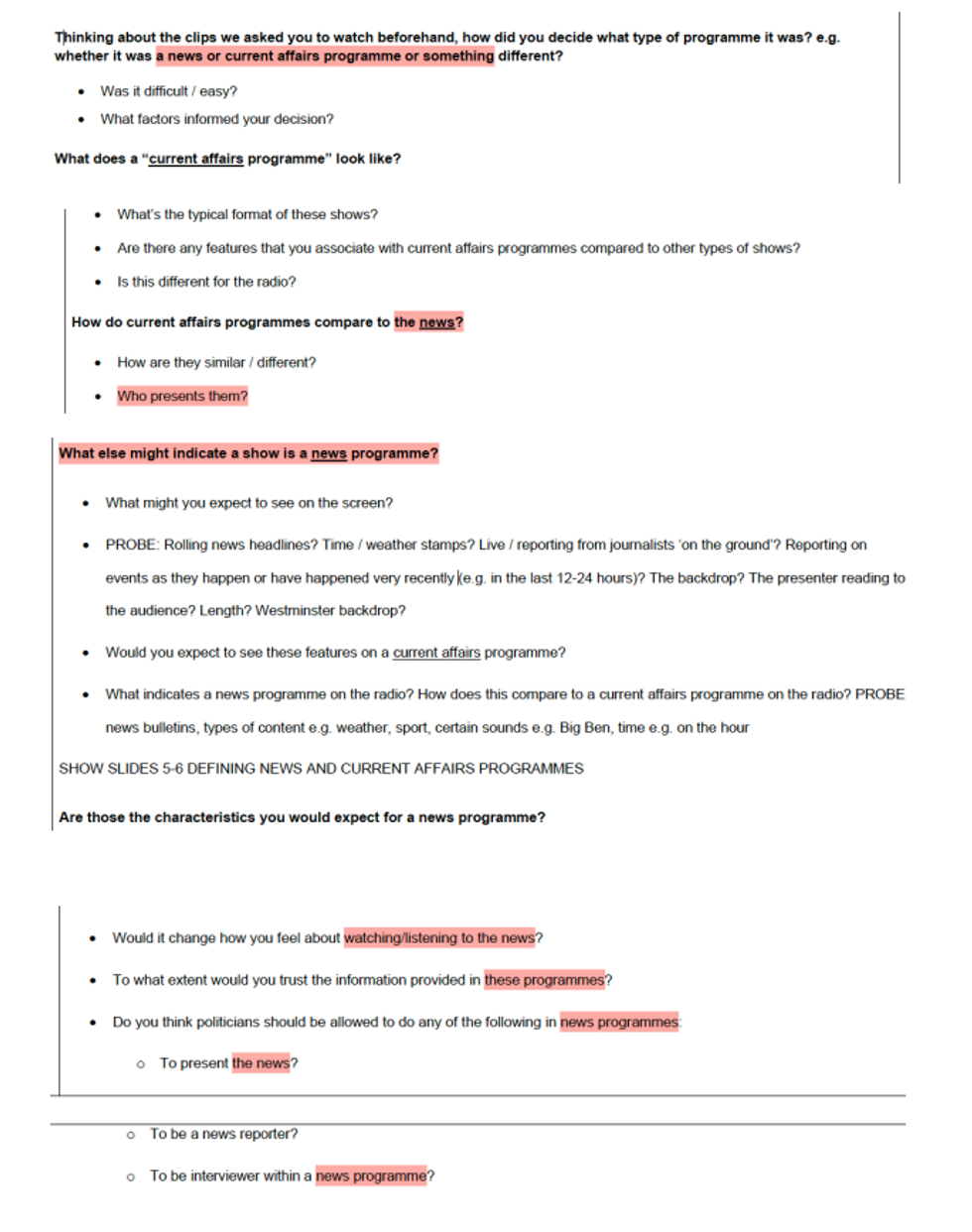
References
- See Ofcom’s 12 May 2025 publication – ‘Politicians presenting news: Consultation on proposed amendment to Rule 5.3 of the Ofcom Broadcasting Code’ - https://www.ofcom.org.uk/tv-radio-and-ondemand/bro....
- Paragraph 2.36 of the consultation.
- Page 3 of the consultation.
- https://www.ofcom.org.uk/about-ofcom/corporate-pol....
- Further to previous correspondence between GB News and Ofcom, GB News understands thatOfcom will also consider as part of the consultation responses GB News’ 16 May 2025 letter to Ofcomsetting out GB News’ initial concerns with the consultation process and the proposal.
- Paragraph 2.36 of the consultation. The Impact Assessment states that “Ofcom considers thatregulated broadcasters generally will benefit from greater clarity on the scope of rule 5.3 of the Code.”(A4.6).
- R (on the application of GB News Limited) v Ofcom [2025] EWHC 460 (Admin) -https://www.judiciary.uk/wp-content/uploads/2025/0....
- Paragraphs 102, 103 and 114.
- See consultation at paragraph 2.24.
- Paragraph 87 of the judgment.
- https://www.ofcom.org.uk/tv-radio-and-on-demand/br....
- https://committees.parliament.uk/oralevidence/1482....
- Paragraph 2.14 of the consultation.
- Paragraph 2.20 of the consultation.
- https://www.ofcom.org.uk/siteassets/resources/docu....
- Paragraph 2.30 of the consultation.
- Consultation paragraph 2.30.
- Consultation paragraph 2.36.
- https://www.ofcom.org.uk/tv-radio-and-on-demand/br....
- Consultation paragraph A4.12.
- Paragraph 73 of the judgment.
- https://www.ofcom.org.uk/tv-radio-and-on-demand/br....
- See, for example, section 2 of the consultation.
- Consultation paragraph 2.20.
- Pages 52 and 53 of the audience attitude research.
- https://publications.parliament.uk/pa/ld5901/ldsel....
- Paragraph 163 of the House of Lords Communications and Digital Committee report.
- https://committees.parliament.uk/oralevidence/1482....
- Paragraph 91 of the judgment.
- https://www.ofcom.org.uk/tv-radio-and-on-demand/br....
- https://www.ofcom.org.uk/siteassets/resources/docu....
- Page 14 of the report.
- Page 19 of the report.
- Pages 52, 53, 55 and 56 of the report.
More From GB News





